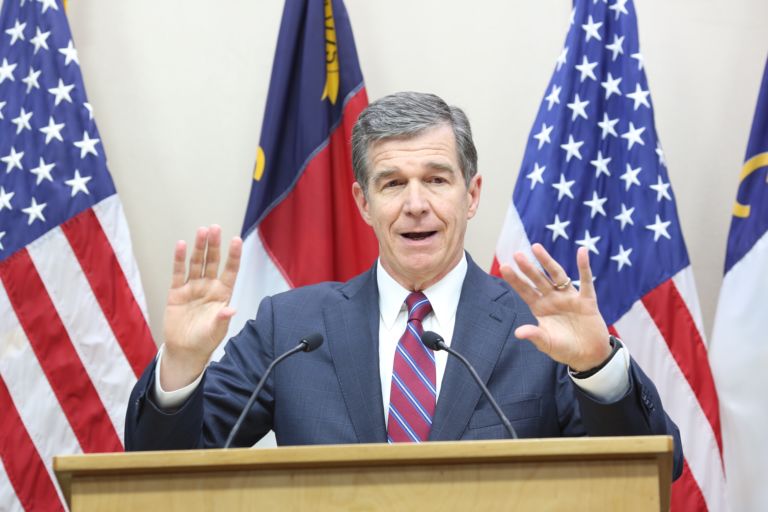Last Wednesday, North Carolina House leadership released a biennial budget proposal that over the next two years would, among other things, increase spending on public schools, raise average teacher pay by more than 10%, and expand school choice.
Here are some of the ways in which the proposed budget would affect K-12 education in North Carolina:
- Increase spending on public schools: The House budget proposal would appropriate $11.7 billion for K-12 education during the upcoming fiscal year. This amount represents 67.6% of the $17.3 billion set aside for education and 39.3% of the total budget of $29.8 billion. In 2024-2025, spending on K-12 schools would increase to $12.3 billion.
- Raise teacher pay: Salaries for teachers would increase by 4.25% during the first year and 3.25% during the following year of the biennium. All school personnel — including non-certified school employees — would be eligible for these raises. Combined with step increases for teachers, the proposed budget would boost average salaries for teachers by more than 10% over the next two years.
- Reinstate master’s pay for teachers: Nearly a decade ago, lawmakers changed the state budget to remove provisions that provided additional compensation to teachers who had a master’s degree. Only educators who had started or completed a master’s degree prior to that time remained eligible for the extra pay. The budget proposed by the House last week would reinstate master’s degree pay for all teachers, despite the fact that most studies haven’t shown that a master’s degree makes teachers more effective.
- Allocate money for teacher assistants: The budget bill would set aside almost $60 million in recurring funding to place teacher assistants in fourth grade classrooms. According to budget writers, this means that “[o]ne teacher assistant will be provided for every four classes of 21 students in the fourth grade.” Paige Terryberry, senior analyst for fiscal policy with the John Locke Foundation, adds, “An additional $20 million in nonrecurring funding for the biennium would go to the Department of Public Instruction to reward teacher assistants who complete coursework to become teachers. Another $575 million in recurring funds would provide additional tuition expenses to account for additional teacher assistants in the program.”
- Bolster school safety: Over the next two years, the bill would promote school safety by setting aside $20 million each year of the biennium for districts to use on security measures like locks, fences, and training.
- Foster greater academic transparency: The proposed budget would encourage academic transparency in the classroom by requiring schools to post all lesson plans that were used during the previous year. Parents would not be informed about lessons ahead of time, but strengthening curriculum transparency in this way could still help ensure that activist teachers aren’t pushing their ideological or political beliefs on students.
- Limit class sizes: House Bill 259 would limit fourth and fifth grade classrooms to 24 students.
- Protect students from COVID vaccine mandates: If the bill were passed, K-12 schools, plus the state’s public colleges and universities, would not be able to force students to receive a COVID-19 vaccine or provide proof of their vaccination status. School employees would also be protected.
- Revise procedures for developing content standards: The bill would create a Standard Course of Study Advisory Commission, which would make recommendations for content standards. Most members of the commission would be appointed by the General Assembly.
- Shift authority for charter school approvals: The House budget proposal would remove the State Board of Education’s power to authorize or close down charter schools. The bill would vest this power in the N.C. Charter Schools Advisory Board, whose name would be changed to the N.C. Charter Schools Review Board. This would give the General Assembly, which appoints members of the review board, more oversight over charter schools.
- Expand school choice: The budget bill would expand eligibility for North Carolina’s Opportunity Scholarship Program by removing a requirement that students in grades three through eight attend public school before they can apply. According to budget writers, the state would spend an additional $25 million per year on the program beginning in the 2024-2025 fiscal year. By expanding eligibility and increasing spending on the program, the legislation would empower more families to choose the school that works best for their child.
The House is expected to vote on the budget this week, while a budget proposal from the Senate is expected to be released sometime in the next few weeks.


